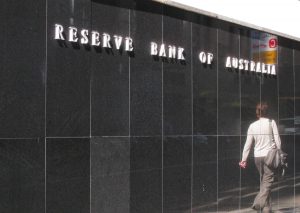With transactions by card overtaking those by cash for the first time this year, according to a Reserve Bank of Australia (RBA) study, new rules limiting card surcharges being applied to all retailers from tomorrow will be welcome news to consumers.
This article explains how much a retailer is allowed to charge you for paying by card, and what you can do if you think someone isn’t playing by the rules.
The rules
Last year, the RBA announced new rules for all card transactions. In short, these rules mean that merchants are not allowed to make a profit on surcharges – they can only charge you what it cost them to process the transaction.
Other, more technical rules were also brought in to reduce the cost of processing transactions for merchants.
These changes have applied to big merchants for the past year, but from 1 September 2017, they will apply to all merchants regardless of size.
So what surcharges are allowed?
Surcharges have to be limited to the cost of processing the transactions.
However, since each retailer will incur different costs, the acceptable surcharge will differ from one retailer to another.
Larger retailers may be able to strike better deals with banks, and so their transaction costs are likely to be lower than that of smaller merchants.
Even though we don’t know the transaction costs for different merchants, the table below shows what you might consider to be the ordinary expected cost of processing a transaction.
| Transaction type | Typical cost of processing transaction |
|---|---|
| Debit cards | 0.5% |
| Visa and Mastercard credit cards | 1-1.5% |
| American Express credit cards | 2-3% |
These figures are just examples and there will be retailers that have higher or lower costs. However, if you find a retailer with surcharges that are out of step with these rates, it may be a sign that they are not just passing on their transaction costs.
What is not allowed?
It’s also worth noting that if a retailer wants to charge one rate for all payment methods, they have to charge the lowest transaction cost, not the highest.
For example, if a store that accepts all types of debit and credit cards wants to have just one surcharge rate, they will have to charge the cost of processing a debit card and not the (usually higher) cost of processing American Express.
Flat-fee surcharges are also generally not allowed; instead, surcharges have to be expressed as a % of the sale.
So, for example, a store will no longer be allowed to charge you 50c to pay by card regardless of what you bought, however, it will still be within the rights of a merchant to set a minimum spend for card transactions.
What can you do about it?
Calling out excessive surcharging can be challenging, especially when you don’t actually know how much the business pays to process the transaction.
But if something strikes you as unreasonable, we suggest you bring it up politely with the staff and see what their response is.
If you’re lost for words, here are some suggestions:
- ‘I heard that there are new rules about card surcharges, did you know that?’
- ‘Have you checked your surcharges recently to make sure they are in line with the new rules?’
- ‘That’s quite a high surcharge compared to other stores. Are you aware of the new rules about surcharges that started on 1 September?’
- ‘I don’t think you are allowed to charge a flat fee for paying by card’
- ‘Why is there such a high surcharge for a debit card?’
If you are not satisfied with the response you get from the store and you think it is worth taking further, you can report the excessive surcharging to the Australian Consumer and Competition Commision using their online complaint form.
Obviously the ACCC won’t be able to take action on every complaint, however, if several complaints are received about the same store, this may lead to the ACCC looking into it further.
Summing up
Last year, the RBA created new rules meaning that card surcharges cannot be more than the actual cost of processing transactions.
These have applied to large businesses since September 2016 and from 1 September 2017, they will now apply to all merchants in Australia.
From tomorrow onwards, if you are charged a flat-fee surcharge or a percentage surcharge that you think is unreasonable, you can make a complaint to the store or the ACCC.
Overall, the introduction of these rules should bring down the cost of credit card surcharges.






The net effect of the legislatively enforced changes is that our monthly costs for the service have INCREASED overall by about 25%!
We have never previously charged our customers any surcharge fees, but we are now having to give this serious consideration due to the cost increase we have experienced.
I moved to Australia over ten years ago, and even before I left NZ, people were using EFTPOS for everything, with no minimums and no additional charges. If buying Chewing Gum or a Cigarette Lighter with EFTPOS, the attendant wouldn’t give it a second thought.
I’ve heard the argument that the rates are excessive, but banks are offering some very competitive charging models for card services. With the new regulations, I expect this will become more so.
There should be a ban on payment surcharges, period… There is no obligation for a company to offer all forms of payment and like all amenities and conveniences, if it is an operating expense, build it into the operating costs and apportion it out across all products and services sold.
I don’t know what the law is on displaying surcharges but with most servos that have them, do display the fact. The Shell opposite will get all my business now as they do not charge surcharges on any card.